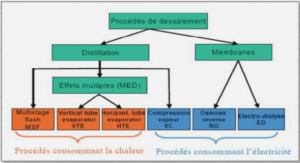THE BRITISH EMPIRE AND THE CHALLENGES OF
DECOLONIZATION
THE RIVALRY BETWEEN BRITAIN AND GERMANY BEFORE THE FIRST WORLD WAR
There are many arguments that have been made among historians about grounds of such war. So many theories have been found and discussed for decades. The controversy has not seen its end and is still growing. For some people, the assassination of the Austrian archduke Francis Ferdinand, who was heir to the throne of Austria-Hungary and his wife by a Serbian student in Sarajevo in June 1914, was the direct cause of the First World War. But for others, imperialism, militarism, rise of nationalism and alliance systems are often named as the major causes. In addition to that, the political and economic situations between the two powers may have caused such tensions. In the nineteenth century and at the beginning of the twentieth century, both industrial and democratic revolution dominated the world. Britain was the largest empire in the world at that time. Its advanced technology enabled it to have remained the leader of European Powers for a long time. Although, in the late nineteenth century Europe saw Germany’s sustained economic growth backed by her own version of successful industrial revolution. “Germany”, in Bismarck’s words, was “saturated” with advantage in population, geographical position, army and industrial strength. Under Wilhelmina dynasty she took off into the slot of the leading continental nation. At this point Britain had seen Germany’s sustained expansion as a threat. There began international competition between Germany and Britain. By 1914, Germany had become Europe’s superpower. She had caught up with and in some areas already exceeded, Britain’s level in terms of production. The most competitive aspect of this rivalry could be seen in their naval expansion. Britain always had been proud of her world-largest navy. The navy was made bigger and stronger than any other powers by far. This was because the British thought having effective sea power crucial to protect their empire and to maintain the sea routes between the different colonies. According to Robert Wolfson and John Laver, Britain had thirty-three battleships and one hundred-thirty cruisers in 1896, while Germany had only six battleships and four cruisers in the same year. Some Navy Laws were passed in Germany in attempt to provide more warships, men-power and to maintain ports. Admiral Tirpitz, the secretary to the navy and chief of the German Admiralty, operated this plan and was responsible for naval construction. 30 Kaiser William II of Germany hated and envied Britain for having a strong navy than his. He increased the German navy and built many warships. Britain responded with building more ships and increasing its navy too. This started a race for building more and better warships and it created tension and competition between the two countries, it was called the arms race. The British were aware of the fact that the defeat of their navy would mean the end of their empire while the Germany’s navy defeat would not ensure German’s absolute defeat. The relationships between these two countries dropped dramatically as the result of this race and it ensured the joining of Britain to the Franco-Russian side in the event of a conflict. Britain and Germany were competing in East Africa and were the only colonial powers in this part of the continent. At an economic level, the production, the output of steel often indicates a country’s economic well-being and industrial advance. It is useful to compare these factual data of both countries as an evidence of development of sensitive of rivalry among them. However, it is shown that Germany had expanded at a more rapid rate than Britain. Germany’s coal while Britain grew percentage (%) production between 1880 and 1913 increased to 307 or 96, 5 %. The difference between the two countries became even greater in steel production. Germany’s output during the period increased twelve fold while Britain’s rose six fold. Advanced technology and increase in steel production achieved “the increased availability of modern machinery” (Wolfson and Laver 91). By the end of the nineteenth century, Germany undeniably became the leading nation in the electrical and chemical industries. These progresses in technology had also influenced the increase of agricultural production. The use of fertilizers contributed to this. “The yield of sugar per ton of beet increased from one ton of sugar from twelve of beet to one of sugar from six of beet over a 40 years period. Yield of crops and number of livestock, also increased” (Wolfson and Laver 91). In any case, Britain did not like her naval supremacy being in jeopardy by the new hand. The expansion of the navy in each country only encouraged more ships to be built in the other. The race of construction of more, heavier and faster fleets with bigger cannons become almost uptight, staining the tension.
FROM THE 1900S TO THE END OF THE FISRT WORLD WAR AND THE INTER-WAR PERIOD
We can say that the beginning of the 20th century coincided with a 90 degree turnover in the international relationship between nations. Fundamentally, there was a big race for the world leadership between the most powerful countries in the world. The UK, URSS, USA, Germany, France, Italy to name only a few, were competing harshly to control the world economy, politics and security. So, the British Foreign Policy was well revolutionized to fit the context. A certain number of acts were passed through the Parliament to make their domination more efficient and effective inside the colonies. This period is known as the “Golden Age” of the British Empire during which they controlled more than 400 million people in the world, 30 million square kilometers and around a quarter of the world land. However, the rising tensions between Britain and Germany leading to the World War I seriously affected Britain’s domination and relationships. They leant on their powerful resources in the colonies to win the war, a policy which was known as the “war effort”. But this “war effort” had a negative impact on the Empire after the First World War. After the Imperial Conference held in 1887 which was meant to consolidate the ties between the British Empire and its colonies, the second stage began in 1902 with the lay out 32 of new policies mainly to strengthen and deepen the economic exploitation of the colonies (Beye and Boissi’s document 2002). The game of alliances put Britain, Russia, Japan and France in the outbreak of the First World War testified the participation of colonies and dominions which provided valuable military, financial and material support. All over the continents, the colonies and the dominions’ military support was visible: 2.5 million men served in the armies of the dominions and thousands of volunteers from crown colonies. In 1917, the British Prime Minister, David Lloyd George, recognized the “war effort” by inviting each of the dominion’s Prime Ministers to join an Imperial War Cabinet to coordinate imperial policy. At the end of the First War (1919) and before the Second World War, the British Empire reached its greatest extent with the addition of 2 million miles and 13 million of new subjects. After the First World War and during the inter-war period, there was a big change in the world order. Britain reduced cooperation with Japan and strategically turned to the USA. That caused fears of security for the British Empire as it was both menaced by Japan and Germany despite the fact that it was undeniable that economy was then vital. Politically, the Empire lost Ireland through the settlement of an Irish Assembly in Dublin, at which, Irish independence was declared. The army branch of Sinn Fein launched a guerilla against British administration. Finally, Irish people won their right for a free state within the British Empire with internal independence but still constitutionally linked with the British Crown. Elsewhere, India began asking for its independence under the conspiracy of communist and foreign plots (1919). In 1922, Egypt was granted independence. In 1932, Iraq gained its freedom too. In 1923, Dominions obtained the ability of determining their own foreign policies at the Imperial Conference. Many laws were passed to give more freedom and autonomy to the Dominions among which The 1923 Treaty of Lausanne, The 1931 Statute of Westminster, The New Constitution of Ireland of 1937 consolidated the birth of the “British Commonwealth of Nations”. 33 After all, we can assert without fear that the Inter-war Period was mainly under the sign of concession made by the British Empire towards its colonies (which demand their independence after the Second World War) in order to avoid confrontation and violence in non-suitable context where they were competing against other former superpowers like Japan, Germany and new ones such as the USA, the Soviet Union.
DEDICATION |



